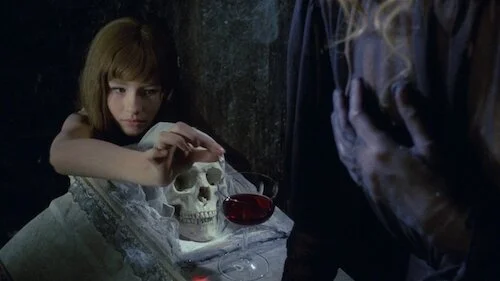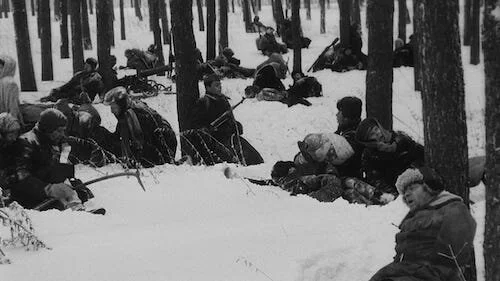The Best 100 Films of the Decade: When Does it Get Rough?
Valerie and her Week of Wonders.
Our Best 100 Films of the 1970’s list is up tomorrow, and we are naturally excited. Admittedly, we’re also running out of a lot of different things to say before our lists get posted, and we still have a bunch to go! Even though our ‘70s list is up tomorrow, we are currently researching the 1940’s and writing up our 1950’s list. Needless to say, we’re quite far ahead, and we’re working hard to get these lists out to you dear readers (and make them [hopefully] right!). We’ve already discussed how these lists get made, and our takeaways from each of these lists. Let’s also not forget our original mission as to why we’re doing this in the first place, and our adjusted mandate with what we can accomplish now. So, what more can we even bring up? We can go through all of the other possible questions after why, what, and how, so that leaves us with when, who, and where. Even if we could pretend to think of something substantial to say for these questions, that still leaves the remainder of our decades lists without an article to hype them up. Either way, we’ll figure it out (we see this as a challenge more than a surrender).
So, let’s tackle the when question, and see if we can do it. When does this project begin to get rough? Well, that’s an interesting question, because it actually has a few interpretations. If we were to be asked this about the actual content that we’re watching, the answer is: never. We can admit which our favourite decade to cover has been so far (the 1970’s and the 1960’s), and don’t feel shy in saying that maybe some decades weren’t quite as stuffed to the brim with excellence as our favourites. However, not a single decade has been an issue in the department of quality so far. We’ve had zero problems coming up with strong, impenetrable lists of one hundred fantastic films, without feeling like we didn’t dive deeply enough.
Taxi Driver.
However, there has been one other concern that has risen since we have been doing our research, and it might be obvious as to what it is if we remind you that we are going backwards in time with our experiment. That’s right: we’re finding it more and more difficult to avoid problematic filmmaking, subject matters, and habits. We’re currently watching our ‘40s films for research, so you know we’re already in unavoidable territory. It’s the sad reality of the situation, however. The further back we go, the more problematic the pool of films we can research will be. Naturally, we’re avoiding any explicitly intolerant works that promote hatred or insensitivity (it also helps that this kind of toxicity usually makes films worse, so they wouldn’t make best-of lists already), but even many great films have a problem or two indicative of when they were made. A currently discussed example is obviously Gone with the Wind, which is a technical achievement in cinema littered with racism and undertones of sexism.
The Ascent.
As you can imagine, it’s become impossible to avoid, and we will definitely be raising this concern often. It’s difficult to celebrate cinema — especially one hundred films of a time period each time — without bumping into these problems. What we do want to highlight, even from this early on, is that our inclusion of works with time-relative problematic content is by no means a condoning of these ideals. We’re honouring films as films first and foremost. However, we can promise to never celebrate explicitly disgusting and bigoted works, since they have no place on our website. The further back we go, the more of a challenge this avoidance becomes. We’re still celebrating great films, but this does sadden us, especially if we’re facing such intolerance dead on for such long periods of time. History is history, but it doesn’t make dealing with hate any easier. We will promote our love of cinema and celebrate all of its good sides, though.
Our Best 100 Films of the 1970’s is up tomorrow. Stay tuned!
Andreas Babiolakis has a Masters degree in Film and Photography Preservation and Collections Management from Ryerson University, as well as a Bachelors degree in Cinema Studies from York University. His favourite times of year are the Criterion Collection flash sales and the annual Toronto International Film Festival.





